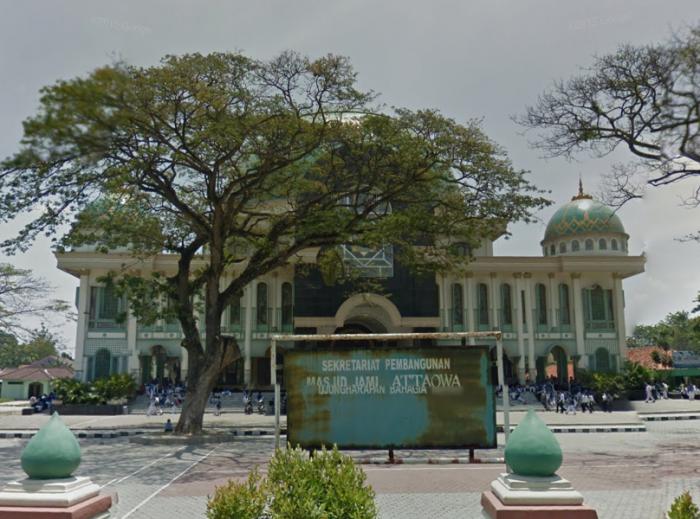Starting from a modest mosque, Pondok Attaqwa has grown to become the oldest and largest pesantren in Bekasi, West Java. With hundreds of thousands of alumni spread across various regions, Pondok Attaqwa has fulfilled its founder’s vision of educating generations to be wise, skilled, and true to their faith.
The founder of Pondok Pesantren Attaqwa, the late KH Noer Alie, is recognized as a national hero with a background in Islamic scholarship. Born on June 15, 1913, to H. Anwar bin H. Layu and Hj. Maimunah binti Tarbin, he showed a keen interest in religious studies from a young age. At around seven years old, he began studying under H. Ma’sum in Ujungmalang, moving on to learn from numerous other religious scholars, including KH Mughni and KH Ahmad Marzukih. Eventually, he traveled to the Holy City of Mecca to deepen his knowledge, returning to Indonesia in 1940.

Upon his return, KH Noer Alie built a mosque in Kampung Ujungharapan, Kelurahan Bahagia, Babelan District, Bekasi Regency, where he began to teach students in this simple setting. However, the initial phase of his educational efforts was interrupted by political turmoil, the fight for independence, and the Dutch aggression. KH Noer Alie played an active role in resisting the colonial forces, leading to a temporary suspension of all educational activities. Due to its involvement in the independence struggle, his pesantren came to be known as a pesantren perjuangan (a pesantren of struggle), as it served as a base for anti-colonial resistance. During this time, KH Noer Alie even instructed his students to join the fight for independence.
In 1950, as the political climate stabilized, KH Noer Alie resumed his educational mission by establishing a more structured pesantren and madrasah. Originally called Pesantren Islam Bahagia, named after the local area, KH Noer Alie aimed to foster future generations who were true, knowledgeable, and skilled—first teaching them to pursue truth, which then formed the foundation for wisdom and expertise. His unwavering dedication attracted an increasing number of students.
In 1956, the Yayasan Pembangunan, Pemeliharaan, dan Pertolongan Islam (Foundation for Islamic Development, Maintenance, and Assistance, YP3I) was established to oversee the educational activities. In 1962, Attaqwa Middle School (MMA) was founded, followed by a separate pesantren for female students in 1964.
These expansions laid the groundwork for today’s robust Pondok Pesantren Attaqwa, including Pondok Pesantren Attaqwa Putra (for boys) and Pondok Pesantren Attaqwa Putri (for girls), now covering an impressive 24-hectare campus. KH Noer Alie’s legacy extended beyond education to shaping Ujungharapan into a “santri town.” The community around Attaqwa is organized into areas based on local prayer houses (musala), all connected to the central mosque of the pesantren. As a result, residents refer to community sectors by musala names rather than the typical neighborhood terms (RT/RW), each centering on the main mosque at Pondok Pesantren Attaqwa.
Following KH Noer Alie’s passing on January 29, 1992, his family and dedicated followers continued his vision, fostering growth in the pesantren’s education programs. Today, under the Attaqwa Foundation, the pesantren supports 36 kindergartens, 62 Islamic elementary schools (MI), one Islamic elementary school (SDIT), 23 junior Islamic secondary schools (MTs), 13 junior high schools (SMP), seven Islamic high schools (MA), three high schools (SMA), a vocational high school (STM), a vocational school (SMK), Attaqwa Higher Pesantren (PTA), and the Attaqwa Islamic College (STAI).
While it has embraced modern advancements, Pondok Pesantren Attaqwa remains committed to traditional Islamic scholarship through its continued study of classical texts, or kitab kuning, preserving the heritage of pesantren education.
Translated from here.




